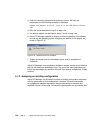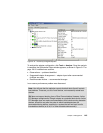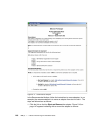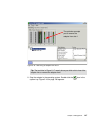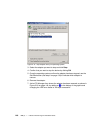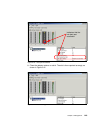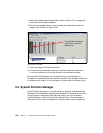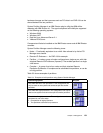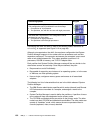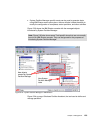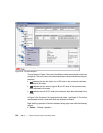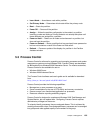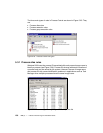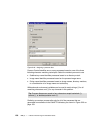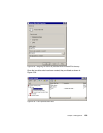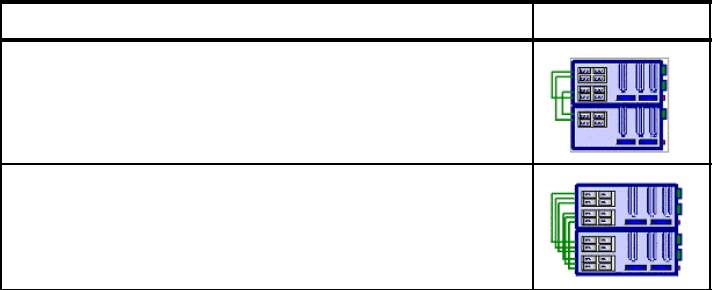
152 IBM ^ xSeries 440 Planning and Installation Guide
Connecting one RXE-100 with 12 slots to two different nodes, referred to as
twin-tailing, is supported (see Figure 3-10 on page 82).
Although not supported on the x440, the maximum configuration that System
Partition Manager supports is four nodes with four processors each and four
expansion enclosures. The expansion enclosures are connected, one to each
node or twin-tailed between two. This makes possible a partition of 16
processors, 256 GB of memory, and 72 PCI-X adapter slots.
Each partition that System Partition Manager creates will be very similar to the
stand-alone servers we use today. Once they are defined, they can:
Be powered on and off individually
Be capable of supporting one instance of an operating system, or in the case
of VMware, one host operating system
Have a single, contiguous memory space and access to all associated
adapters
The following is a list of characteristics that are in the initial release of System
Partition Manager:
The IBM Director administrator specifies which nodes (chassis) and Remote
I/O Enclosures are members of a complex, and assigns a name to the
complex.
System Partition Manager is used to define the partitions. A partition of two or
more nodes will have one designated as the primary node.
The CD-ROM and diskette drives are active on the primary node. The other
nodes have their CD-ROM and diskette drives disabled. The other nodes can
operate in “headless” mode, which means the server operates without a
console (keyboard, video, mouse) attached.
Two x440s, one with eight processors, one with four processors.
This configuration can be partitioned in one of two ways:
One partition of 12 processors
Two partitions, one with four and one with eight processors
Two x440s with 16 processors. This configuration can be
partitioned in one of two ways:
One partition of eight processors
Two partitions each with eight processors
Partitioning options Diagram



